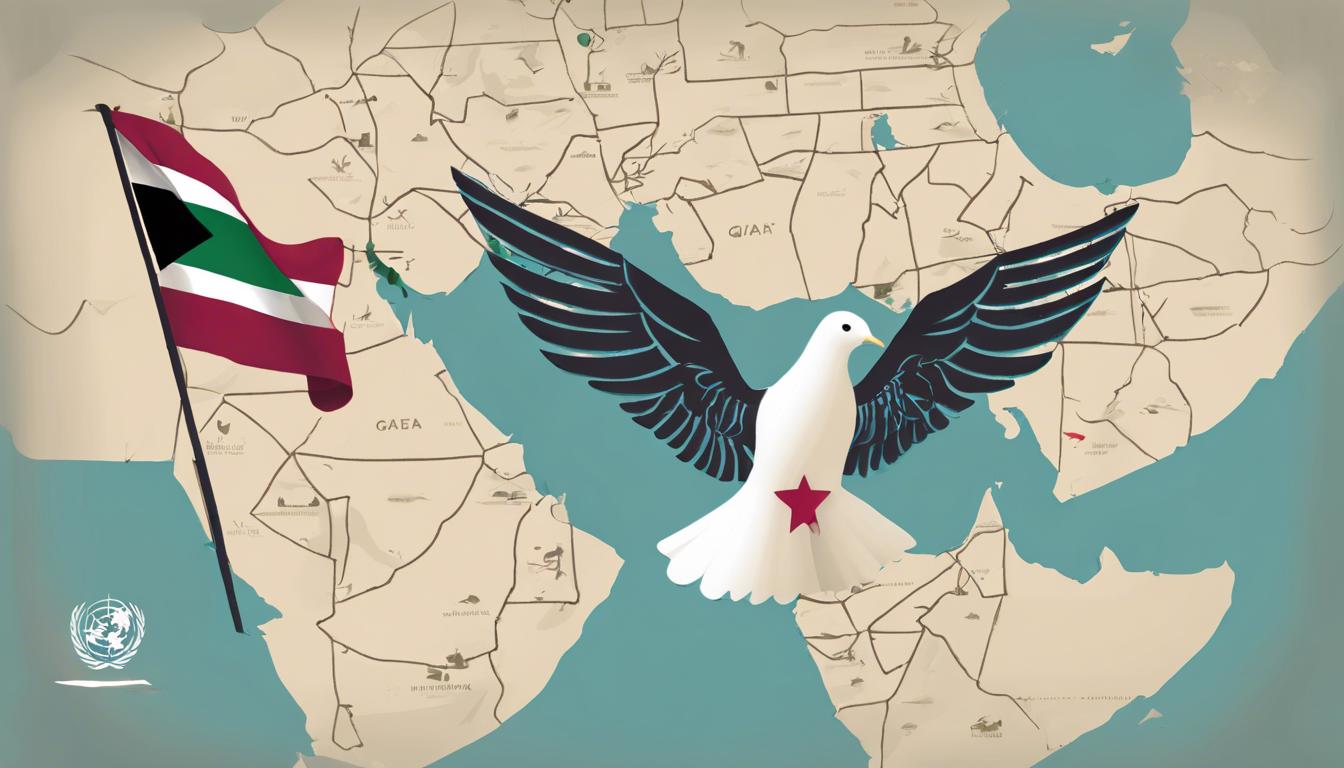The United States, alongside Egypt and Qatar, is spearheading efforts to mediate a ceasefire between Israel and Hamas, amid a conflict that has seen nearly 32,000 Palestinian casualties. Intense international efforts, including a proposed US-drafted UN resolution, aim to halt hostilities and address the humanitarian crisis in Gaza.
The United States, in collaboration with Egypt and Qatar, is actively engaged in facilitating discussions towards achieving a ceasefire between Israel and Hamas amidst an ongoing conflict that has tragically resulted in nearly 32,000 Palestinian casualties, predominantly women and children. US Secretary of State Antony Blinken has expressed optimism about the negotiations, highlighting a positive shift towards resolving the hostilities which have prompted significant international concern, especially given the blockade’s severe impact on Gaza’s civilian population.
In response to the escalating crisis, both the EU and US are exerting pressures for an immediate truce and a resolution concerning hostages held by Hamas, driven by fears of a worsening humanitarian catastrophe in Gaza. European leaders, after a summit in Brussels, have advocated for an “immediate humanitarian pause leading to a sustainable ceasefire,” mirroring a sharper sense of urgency in Washington’s stance, as evidenced by a forthcoming US-drafted UN resolution calling for an immediate ceasefire, strongly supported by international partners.
To further these efforts, the US is pushing for a pivotal vote at the United Nations for the adoption of a revised draft resolution demanding an “immediate and sustained cease-fire,” aimed at protecting civilians and ensuring the delivery of critical humanitarian aid to over 2 million Palestinians at risk due to the conflict. This new draft proposes separating the ceasefire from the release of hostages, garnering optimistic feedback from US Ambassador Linda Thomas-Greenfield regarding its potential adoption.
The situation’s gravity is underscored by the participation of key international figures and bodies, including Russia’s deputy U.N. ambassador, who supports an immediate ceasefire but has reservations about the draft’s phrasing, and France’s U.N. ambassador, who emphasizes the need for quick action. The international community is faced with a crucial moment as it seeks to navigate diplomatic channels to halt the violence and provide aid to Gaza’s beleaguered civilian population.













